Wikimedia Commons / CC-BY-SA-3.0 / GFDL
Marlon Brando
(Actor)
3 April 1924 – 1 July 2004 (Aged 80)
Brando was a legendary American actor, best known for his Academy Award-winning performances as Terry Malloy in On the Waterfront and Don Vito Corleone in The Godfather.
From the late 1970s, Brando became known for settling for taking cameo roles and being paid large salaries featuring in films such as Superman and The Formula.
During his life, Brando was an activist for many causes, including the civil rights movement and the treatment of Native Americans.
In 1972, after receiving the Best Actor Academy Award, Brando sent Sacheen Littlefeather, an Apache Native American, to decline the award in protest of the treatment of Native Americans in Hollywood films.
In 1999, Time magazine named Brando as one of the 100 Most Important People of the 20th Century.
Brando is consistently ranked as one of the greatest actors of all time.
A notorious womanizer, Brando suffered from numerous health problems in his later years, with considerable weight gain leading to type-2 diabetes.
He died from pulmonary fibrosis, a lung condition, at the age of 80.
Ray Charles
(Singer)

23 September 1930 – 10 June 2004 (Aged 73)
Charles was a legendary American singer-songwriter who was blind from the age of seven. Among his best-loved songs are “Hit the Road Jack”, “Mess Around”, “Unchain My Heart,” and “Georgia on My Mind.”
While blind, Charles learned to read, write and arrange music in Braille, also learning to play piano, organ, sax, clarinet, and trumpet, before going on to become a soul music pioneer combining blues, jazz, and gospel music.
In 1986, Charles was inducted into the Rock & Roll Hall of Fame at its inaugural ceremony and was awarded the Grammy Lifetime Achievement Award in 1987.
He is widely considered one of the greatest music artists of all time.
Charles died from liver disease at the age of 87. In his hometown of Albany, Georgia, there is a bronze sculpture of Charles seated at a piano in Ray Charles Plaza.
Ronald Reagan
(U.S. President)

6 February 1911 – 5 June 2004 (Aged 93)
Reagan was an American politician and actor who was the Governor of California before going on to become the 40th President of the United States from 1981 to 1989.
Before his political career, Reagan appeared in over 50 films and was the President of the Screen Actors Guild from 1947 to 1952.
Reagan was disqualified from combat duty during World War II as a result of poor eyesight, leading to him making training films instead before he left the military ranked as a captain.
During his reign as president, Reagan pursued an economic policy nicknamed “Reaganomics”, survived an assassination attempt, intensified America’s War on Drugs, oversaw the end of the Cold War, and the Iran–Contra affair.
In a famous speech at the Brandenburg Gate in Berlin in 1987, Reagan challenged Soviet General Secretary Mikhail Gorbachev to “tear down this wall!”
Among the honors bestowed on him during his life, Reagan received the Presidential Medal of Freedom from his successor President George H. W. Bush, and Washington National Airport was renamed Ronald Reagan Washington National Airport.
At the end of his presidential term, Reagan’s ratings were amongst the highest of any departing U.S. president.
In 1994, he was diagnosed with Alzheimer’s disease, dying ten years later at the age of 93.
Brian Clough
(Footballer/Manager)
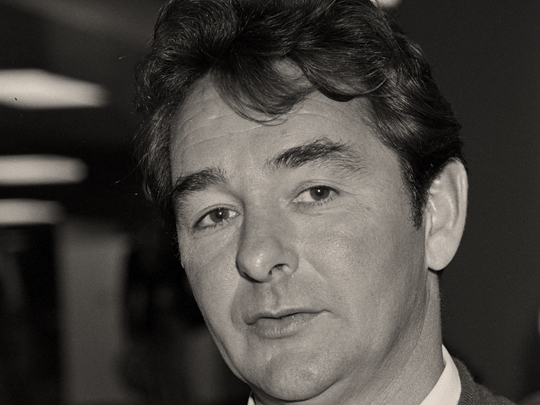
21 March 1935 – 20 September 2004 (Aged 69)
Clough was a legendary English football player and manager, also renowned for his outspoken and entertaining views in many of his interviews.
During his playing career, Clough was a prolific goal scorer scoring 251 league goals from 274 appearances with Middlesbrough and Sunderland, before a serious knee injury caused him to retire at the age of 29.
In his managerial career, Clough had a close association with his assistant manager, Peter Taylor, beginning at Hartlepool United in 1965.
In 1967, the duo moved on to Second Division Derby County, winning promotion the following year, and they were crowned first division champions for the first time in the club’s history in 1972. In 1973, they reached the semi-finals of the European Cup.
In 1974, Clough joined Leeds United, where he was sacked after just 44 days in the job, having had dressing room problems from the start.
In January 1975, Clough joined Nottingham Forest and went on to create one of England’s greatest ever sides.
Forest was promoted in his first full season and won the club’s first-ever league title the next season.
Incredibly, his team went on to win two consecutive European Cups in 1979 and 1980, as well as two League Cups.
Sadly, Clough’s Forest never reached those heights again, and his career ended in 1993 as they were relegated from the first division, retiring a legend of the game. Clough died from stomach cancer at the age of 69.
Yasser Arafat
(Palestinian Leader)

24 August 1929 – 11 November 2004 (Aged 75)
Arafat was a Palestinian political leader, serving as Chairman of the Palestine Liberation Organization from 1969 to 2004 and President of the Palestinian National Authority from 1994 to 2004.
After studying in Cairo, Arafat opposed the creation of the State of Israel and fought in the 1948 Arab–Israeli War.
In the late 1950s, he was a founding member of the Fatah political party, leading it from 1959 until his death.
After decades of conflict, Arafat changed his approach with Israel from open conflict to one of negotiation, recognizing Israel’s right to exist in 1988 and sought a two-state solution to the Israeli–Palestinian conflict.
In 1991, at the Madrid Conference, Arafat signed a self-governing pact with Israel, and along with Israeli leaders made several attempts to secure a lasting peace.
The most notable being the Oslo Accords in 1993 and the Camp David Summit of 2000.
In recognition of their part in the Oslo Accords, Arafat and Israel’s Yitzhak Rabin and Shimon Peres shared the Nobel Peace Prize, but sadly the terms were never implemented.
A heroic freedom fighter to some and a terrorist to others, Arafat spent his final two years effectively confined within his Ramallah compound by the Israeli army before he fell into a coma and died at the age of 75.
Christopher Reeve
(Actor)

25 September 1952 – 10 October 2004 (Aged 52)
Reeve was an American actor who became a worldwide star in 1978 in his role as Superman, which had 3 further sequels.
A graduate of the acclaimed Juilliard performing arts school, among his other film roles, are The Bostonians, Morning Glory, and Street Smart.
In 1995, Reeve was left quadriplegic after being thrown from a horse during an equestrian competition in Virginia.
The incident left Reeve having to use a wheelchair and a portable ventilator to breathe for the rest of his life.
Reeve spent much of his time lobbying on behalf of people with spinal cord injuries and for human embryonic stem cell research.
In 1998, he founded the Christopher Reeve Foundation and co-founded the Reeve-Irvine Research Center.
Reeve died from cardiac arrest at the age of 52. Tragically, his wife Dana died from cancer two years later in March 2006 at the age of 44.
Peter Ustinov
(Actor/Writer)
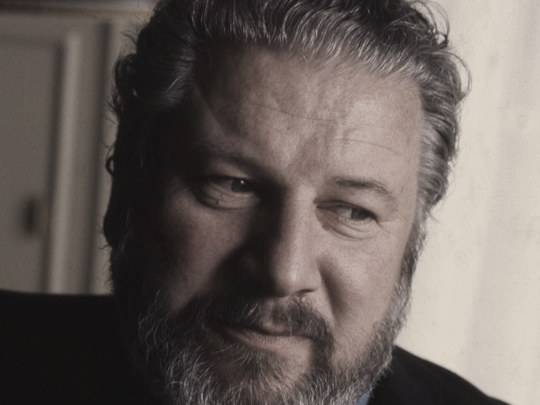
16 April 1921 – 28 March 2004 (Aged 82)
Ustinov was an English actor and writer who also served as a Goodwill Ambassador for UNICEF and was President of the World Federalist Movement.
During his acting career, Ustinov starred in over 70 films but is best known for his Best Supporting Actor Oscar-winning performances in Spartacus and Topkapi.
In a wide-ranging career, Ustinov won a Grammy, Emmy, Golden Globe, and BAFTA award, among numerous other awards.
In recognition of his significant humanitarian work, Ustinov received multiple governmental honors from countries such as the United Kingdom, France, Brazil, and Germany.
Ustinov died on of heart failure at a clinic in Switzerland, where he had lived.
Estée Lauder
(Businesswoman)
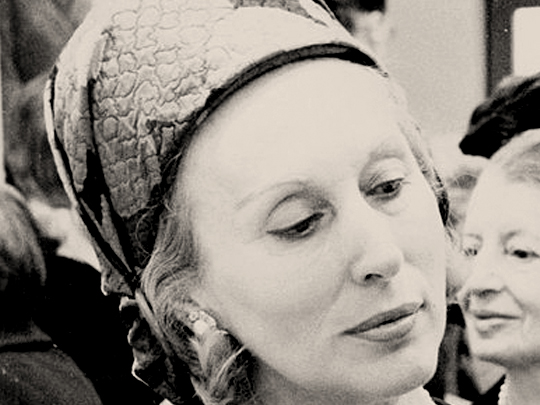
1 July 1908 – 24 April 2004 (Aged 95)
Lauder was a renowned American businesswoman, who co-founded the Estée Lauder cosmetics company with her husband, Joseph, in 1946.
After high school, Lauder started a beauty company with a skin cream developed by her chemist uncle, John Schotz.
In 1953, Lauder introduced her, Youth-Dew, a bath oil that doubled as a perfume which brought her business to a new sphere, ultimately leading to her becoming the richest self-made woman in the world.
The success of her business saw Lauder being the only woman named on Time magazine’s list of the 20 most influential business geniuses of the 20th century in 1998.
Lauder received the U.S. Presidential Medal of Freedom and also received the Knight class of the Legion of Honour, France’s highest honor.
She died of heart failure at the age of 95.
Elmer Bernstein
(Composer)
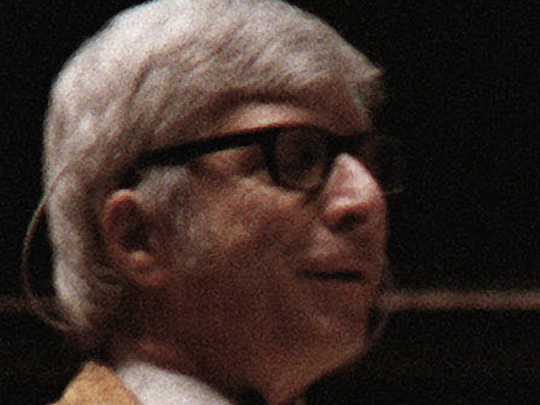
4 April 1922 – 18 August 2004 (Aged 82)
Bernstein was a prolific American composer, best known for his film scores in a career that spanned more than five decades and over 150 films.
Among his most recognizable film scores are those from The Magnificent Seven, The Ten Commandments, To Kill a Mockingbird, Ghostbusters, Airplane!, and The Great Escape.
Bernstein was nominated for 14 Academy Awards, winning one for his score to Thoroughly Modern Millie in 1967, as well as winning an Emmy Award, and two Golden Globe Awards.
Throughout his career, Bernstein received many honors, such as an Academy Lifetime Achievement Award, and a star on Hollywood Walk of Fame.
He died from cancer at the age of 82.
Francis Crick
(Biophysicist)
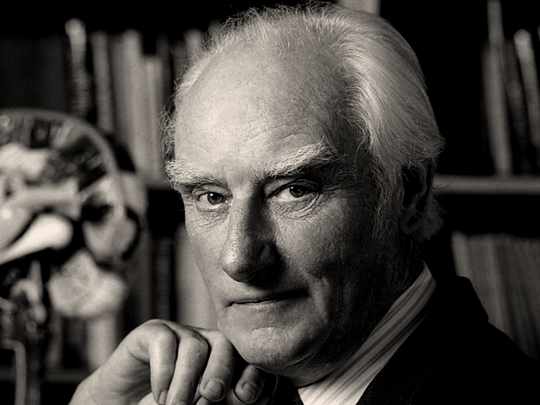
8 June 1916 – 28 July 2004 (Aged 88)
Crick was a British biophysicist, best known for being the co-discoverer of the structure of the DNA molecule with James Watson in 1953.
During World War II, he worked for the British Admiralty Research Laboratory and played a key role in designing a new mine that was effective against German minesweepers.
In 1962, along with Watson and Maurice Wilkins, Crick was jointly awarded the Nobel Prize in Physiology or Medicine, in recognition of their work on the structure of the DNA molecule.
During the remainder of his career, he held the post of Distinguished Research Professor at the Salk Institute for Biological Studies, with his later research focused on attempts to advance the scientific study of human consciousness.
Crick died from colon cancer at the age of 88.
